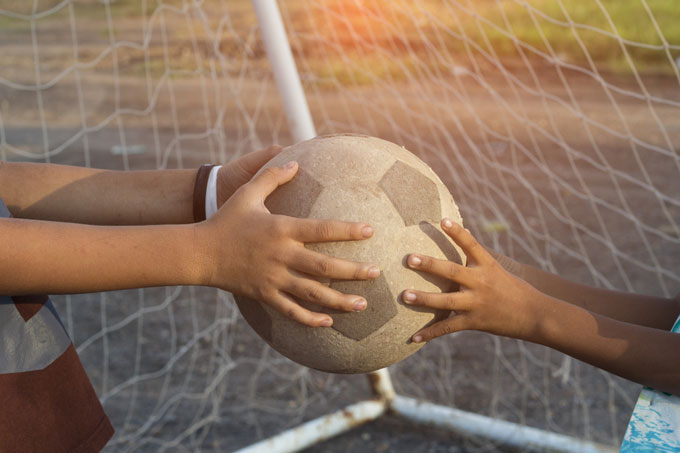Dr Dikaia Chatziefstathiou, looks at how sporting agencies need to work to unify people through sport.
Today marks the fourth annual International Day of Sport for Development and Peace; a UN-sponsored awareness day to celebrate the role and contribution of sport and physical activity to education, human development, healthy lifestyles and a peaceful world.
The potential of sport, its global reach, universal language, impact on communities, and young people in particular, is increasingly recognised around the world. It was highlighted as a key contributor to each of the eight Millennium Development Goals (MDGs) in 2000, and in resolution 70/1 entitled, Transforming our world: the 2030 Agenda for Sustainable Development, adopted in 2015, sport’s role in advancing social progress is further acknowledged as “an important enabler of sustainable development”.
Since the 19th century, sport governing bodies such as the International Olympic Committee (IOC) have insisted since that sporting events and movements function to promote peace, tolerance and internationalism among participants and viewers. However, this approach has become particularly popular lately with the rise of a new sector of Sport, Development and Peace (SDP) largely driven by global North agencies in global South or regions hit by warfare, social breakdown and natural disaster. They deploy sport as a tool to reduce social tensions; counteract racism, intolerance and prejudice; tackle crime and social exclusion; promote health education and gender equality.
But, we need to be aware that the SDP sector features a variety of stakeholders with complex issues and challenges of patronage and mutuality, particularly within the post-colonial context of international fieldwork programmes from the global North (donor) to the global South (recipient).
Even the language used for empowerment of disadvantaged individuals and communities gives the impression of a neo-liberal framework and position of ‘power’ – often in reference to the global North.
The involvement of transnational corporations as funders of a large number of sport for development and peace programmes raises questions about their motives as well as the impartiality of the evidence they present for the impact on the local communities. Monitoring and evaluation of the SDP programmes is either non-existent or, often not designed in a systematic way for examining the whole process from inception, to implementation and delivery. What the SDP sector really needs is systematic monitoring and evaluation, as well as bottom-up approaches of solidarity rather than empowerment.
The SDP stakeholders, especially those based in the global North, should consider a more dialectical, culturally and politically sensitive approach that is fully aware of the needs, values and history of the communities.
Dr Dikaia Chatziefstathiou is a Reader in Olympic Studies and the Social Analysis of Sport, in the School of Human and Life Sciences.
 Expert comment
Expert comment Jeanette Earl
Jeanette Earl 1113
1113


